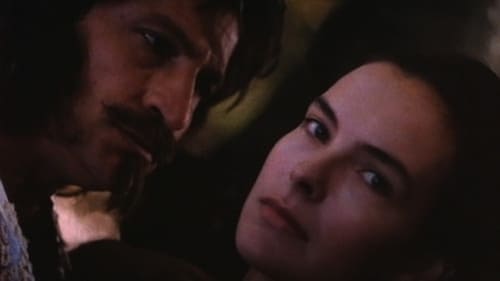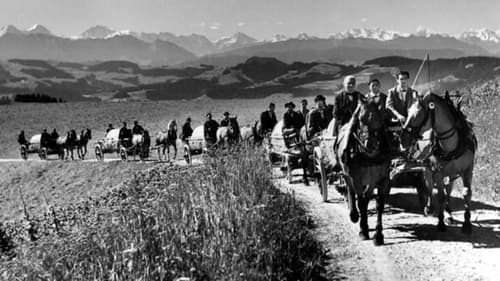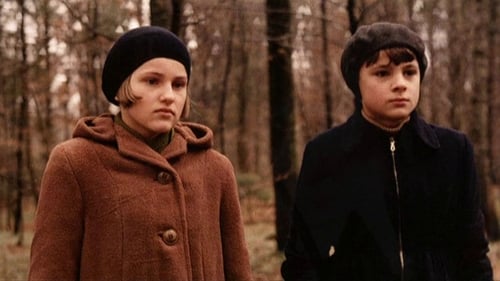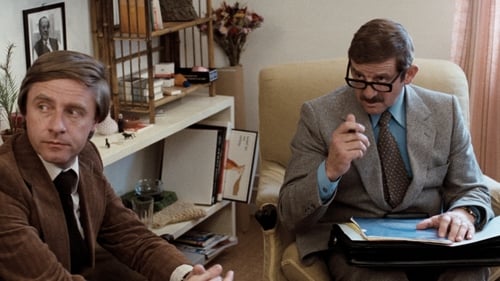Georg Janett
Nacimiento : 1937-06-26, Basel, Switzerland
Muerte : 1914-01-17

Editor
El film relata los sucesos de 1967 y reconstruye sobre todo los últimos veinte días del revolucionario en Bolivia, el cerco tendido sobre el Che por el ejército y su asesinato en la pequeña escuela de La Higuera.A cada uno de los fragmentos, leídos en un tono marcadamente desapasionado, corresponde un pequeño tramo de imagen-sonido de la naturaleza de los sitios correspondientes y en ocasiones pequeñas entrevistas a lugareños que conocieron al guerrillero, sobrevivientes de su tropa o soldados que lo combatieron. La figura de Guevara que aparece en la narración no solo está despojada de cualquier viso hagiográfico, sino que es evidente -dados los fragmentos seleccionados en el diario- el trabajo del realizador para que aflore el simple ser humano a través de apuntes en los que la meditación apunta a la enfermedad (el asma), la edad o la muerte del más cercano colaborador.

Editor
A three-part documentary about four young men who were active members of the Zurich youth movement in the early 1980s and died tragically as a result of “accidents” with the involvement of the police. The exuberant Dani and Michi stole a motorbike to go on a joyride; a police car gave chase and caused their fatal crash. Renato, a young junkie raised in orphanages, was shot by the police while driving a stolen car. Max, an innocent bystander at a youth demonstration, was clubbed on the head by a police officer, and later died of complications caused by his head injuries. Taken together, these three incidents reflect the tense and violent atmosphere of the time and the conflict between repressive authority and a young generation desperate for freedom

Le monteur
A journalist is assigned to interview an eccentric anthropologist who has exhumed the skeleton of Jörg Jenatsch, a revered freedom fighter who was mysteriously murdered in 1639. Initially disinterested, the journalist begins to uncover unflattering truths about the national hero and experiences visions in which he seems to be witnessing events that transpired over 300 years ago. As he obsessively pursues the investigation, his personal life and his grip on reality disintegrate, drawing him relentlessly toward the fatal carnival at which Jenatsch was killed.

Editor

Editor
Francois Korb is an arms manufacturer who sold both to the Germans and the Allied forces. Korb's home life is less than ideal, since his wife is having an affair with his brother, and his young son is inseparable from a teddy bear. To remedy the son's situation, the parents take in a little refugee girl as a temporary companion and playmate, and the two children become fast friends.

Writer
A comedy directed by Rolf Lyssy.

Editor
A “filmic re-reading” of Max Frisch's novella Montauk (1974) and of excerpts from his published diaries. It is neither a biographical portrait of Frisch – who was one of the greatest 20th century Swiss writers – nor a filmed adaptation of the novel. Instead, Dindo returns to the locations the author describes in his texts, searching for traces of past events that may turn out to have been more imagined than real.

Editor
This romantic drama follows two policemen whose job is to investigate the lives of foreigners who have applied for Swiss citizenship. Among the applicants they must screen are a French psychiatrist and his wife, and a ballet dancer. The married couple are quickly accepted, but the dancer's life offers some objections. However, since the younger policeman has fallen in love with her, there is a chance that she, too, will win Swiss citizenship.

Editor
A tale, told by his five daughters, of the life and death of a man very representative of a Protestant Switzerland in the early 20th century where life was conditioned by the work ethic. He was first a farmer, then a factory worker, then the head of a small family affair where his daughters became his workers. The business grew into an large factory that would be eventually taken over by the only son. The five stories show us the family and professional context of the first half of the 20th century. They are also five different versions of the serene death of a man who felt he had done his duty. The film illustrates the ideas of Max Weber, known for their importance in understanding the Western civilization that emerged from the Reformation.






